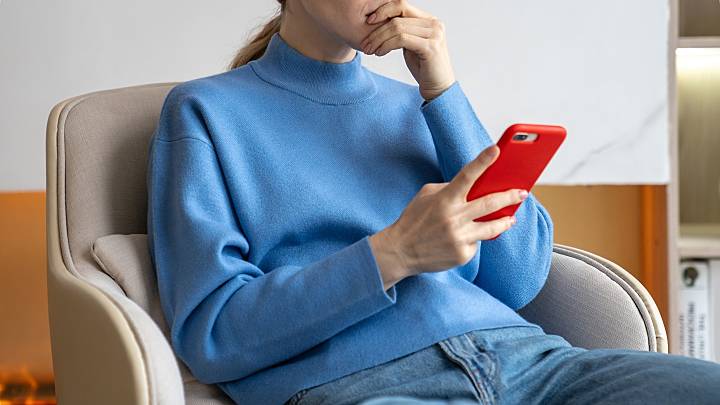Side Effects of the Morning After Pill

Medically reviewed by
Dr Charlotte HammertonLast reviewed: 21 May 2019
What are the side effects of the morning after pill?

Key takeaways
Both ellaOne and Levonelle can cause side effects such as nausea, headache and abdominal pain
After taking the morning after pill, you may find that your next period is lighter or heavier than usual or that it comes earlier or later
If you vomit within three hours of taking the morning after pill you may need to take another dose
You can treat morning after pill side effects with over-the-counter medications and eating before you take it to reduce nausea
The morning after pill can be a safe way of avoiding unwanted pregnancies after unprotected sex for most women. It’s possible for the morning after pill to give you side effects, but unless you throw up or you can’t put up with your side effects then it isn’t usually a problem.
What is the morning after pill?
The morning after pill is a type of emergency contraception that you can take to avoid a pregnancy after you’ve had unprotected sex. There are two different tablets available in the UK: Levonelle and ellaOne. You can also get generic Levonelle (Levonorgestrel).
Both types of morning after pill contain hormones which help to avoid a pregnancy.
- Levonelle contains levonorgestrel, a lab-made version of the hormone progesterone. Progesterone is naturally found in the body. It’s one of the hormones that regulate your periods.
- ellaOne contains ulipristal acetate, which changes how progesterone works in the body.
- Taking Levonelle or ellaOne can stop or delay an egg from being released (ovulation). So, the egg won’t get fertilised by sperm.
Levonelle and ellaOne are available over-the-counter. This means that you don’t need to get a prescription from a doctor to get them.
You should take the morning after pill as soon as possible after you’ve had unprotected sex. To be effective at all, Levonelle must be taken up to three days after you’ve had unprotected sex and ellaOne must be taken up to five days after.
What should I expect after taking the morning after pill?
It’s difficult to tell how your body will react to taking the morning after pill. Some women find that they feel completely fine after they take the pill. Others feel side effects straight away. Common side effects that women get as soon as they take the morning after pill are:
- spotting
- cramping
- feeling sick (nausea)
- being sick (vomiting)
- dizziness
If you find that you get side effects after taking the morning after pill, there are some things that you can do to help, including:
- Taking regular over-the-counter painkillers such as paracetamol or ibuprofen can help with cramps
- Ginger, and ginger supplements, help some women with nausea or vomiting
Does the morning after pill cause serious side effects?
Usually, taking the morning after pill doesn’t cause any serious side effects. Many women find that they can put up with the side effects that they get.
But, some very rare side effects can be serious. Call 999 or get someone to take you to the nearest Accident and Emergency department if you get any of the following symptoms:
- feeling lightheaded or faint, or collapsing
- difficulty breathing, or wheezing
- an itchy, raised rash all over the body
- swelling of the face, lips, or tongue
What are the most common side effects?
Taking any medication comes with a risk of getting side effects. The most common ones to look out for with the morning after pill are:
- uncomfortable feelings in the stomach
- headaches
- changes to your periods
- feeling sick (nausea) or being sick (vomiting)
- skin reactions
- back pain
- breast tenderness
- dizziness
- mood changes
- aches and pains
Do different brands of morning after pill have different side effects?
Some side effects of Levonelle and ellaOne are the same. These are:
- uncomfortable feelings in the stomach
- headaches
- dizziness
- changes to your periods
- feeling sick (nausea) or being sick (vomiting)
- breast tenderness
- tiredness (fatigue)
Side effects that are more common with Levonelle (and generic levonorgestrel) are:
- skin reactions
- diarrhoea
Side effects that are more common with ellaOne are:
- back pain

No results found.
Please check your spelling or try another treatment name.
What should I do if I get side effects?
Getting side effects can be unpleasant. Most side effects don’t affect how well the morning after pill works, unless you throw up within a few hours of taking the pill. If this happens to you, speak to your GP or pharmacist because it might mean that you have to take another one.
If you find that you can put up with the side effects that you get, you don’t need to do anything. If your side effects really bother you, there may be some things that you can do to help. If you get pain or discomfort, you can take regular over-the-counter painkillers such as paracetamol or apply hot compresses to the area. If you feel sick, anti-sickness remedies like ginger might help.
What if I am sick after I take it?
If you are sick within three hours after you take Levonelle or ellaOne, you may need to take another tablet. Speak to a GP or pharmacist if this happens to you.
How does the morning after pill affect your periods?
The morning after pill can cause changes to your period. It affects women in different ways. Your next period may be lighter or heavier than normal, or your next period may come earlier or later than is normal for you. Some women get spotting after taking the morning after pill.
If your period is more than 3 weeks late, you’ll need to take a pregnancy test.
Is the morning after pill safe for everyone?
Most women can safely take the morning after pill.
Women who have to take steroid tablets to control severe asthma should not use EllaOne. If you have a severe allergy to any of the contents of the morning after pill you should also not use it. All of the morning after pills contain lactose.
For some women the morning after pill might not work as well – for example if you are taking certain medications, including:
- St Johns Wort
- Some medications used for epilepsy
- Some HIV medications
- Modafinil
- Specific antibiotics (rifampicin and rifabutin)
It’s important to check with your doctor or pharmacist if you’re taking any medication, to make sure it won’t affect the morning after pill.
What are the long-term effects of the morning after pill?
There are many sources that say there are long-term consequences of taking the morning after pill. But, many of these claims are actually incorrect. Some common concerns include:
- Ectopic pregnancies, where the pregnancy takes place outside of the womb. Studies show that taking the morning after pill doesn’t increase your risk of getting an ectopic pregnancy.
- Infertility. Taking the morning after pill doesn’t affect the chances of you getting pregnant in the future.
- Blood clots. The morning after pill doesn’t put you at a risk of blood clots.
How do I know my morning after pill is working properly?
The morning after pill has the best chance of working properly if:
- you took it at the right time: within three days of unprotected sex for Levonelle and within five days of unprotected sex for ellaOne
- you didn’t throw up within three hours of taking the tablet
- you have not already ovulated
Studies looking at EllaOne showed that 1-2% of women who took this pill became pregnant. For Levonelle/levonorgestrel up to 2.6% of women became pregnant. These percentages might also be higher, depending on when in the cycle you are.
To check that your morning after pill has worked, you should take a pregnancy test if you:
- think you might be pregnant or have any symptoms of pregnancy
- do not have a normal period within 3 weeks of taking the pill
- start using any other regular contraception after taking the morning after pill
The best time to take a pregnancy test is at least 3 weeks after having unprotected sex.
If you take a pregnancy test and it shows that you are pregnant even after using the morning after pill, you should see your GP or your local sexual health clinic where they can talk with you about your options.
Are there alternatives with less side effects?
The only other type of emergency contraception that you can get besides the morning after pill is the copper coil, also known as the intrauterine device (IUD). The coil can be put in up to five days after you’ve had unprotected sex. This is the most effective type of emergency contraception, and is the only one that works after ovulation has happened.
The side effects of the copper coil are mainly related to your periods. The coil can make your periods heavier, longer, or more painful. If you choose to use the coil for emergency contraception, you can have it removed if you have side effects, but otherwise it can remain as long-term contraception for up to 5 to 10 years.

Dr Charlotte Hammerton studied medicine at the University of Nottingham and since graduating has worked in hospitals in London, Kent, and Sussex.
Meet our doctorsLast reviewed: 21 May 2019
-
Cleland, K. et al. (2010). Ectopic pregnancy and emergency contraceptive pills: a systematic review. Obstetrics & gynecology; 115(6): 1263-6. [online] Available at: https://pubmed.ncbi.nlm.nih.gov/20502299/. [accessed 13th May 2021]
-
Ernst, E. and Pittler, M. H. (2000). Efficacy of ginger for nausea and vomiting: a systematic review of randomized clinical trials. British Journal of Anaesthesia; 84(3): 367-71. [online] Available at: https://pubmed.ncbi.nlm.nih.gov/10793599/. [accessed 13th May 2021]
-
Gedeon Richter plc (2019). Levonelle one step 1500 microgram tablet. Bayer plc. [online] Available from: https://www.medicines.org.uk/emc/files/pil.5576.pdf [accessed 15th May 2019].
-
Laboratoire HRA Pharma (2018). ellaOne 30 mg tablet. EMC. [online] Available from: https://www.medicines.org.uk/emc/files/pil.6657.pdf [accessed 15th May 2019].
-
Joint Formulary Committee (2019). British National Formulary. London: BMJ Group and Pharmaceutical Press. [online] Available from: https://bnf.nice.org.uk/. [accessed 14th May 2019].
You might need emergency contraception if you’ve recently had unprotected sex and want to reduce your risk of getting pregnant. ZAVA offers a morning after pill service, which includes a variety of options.











